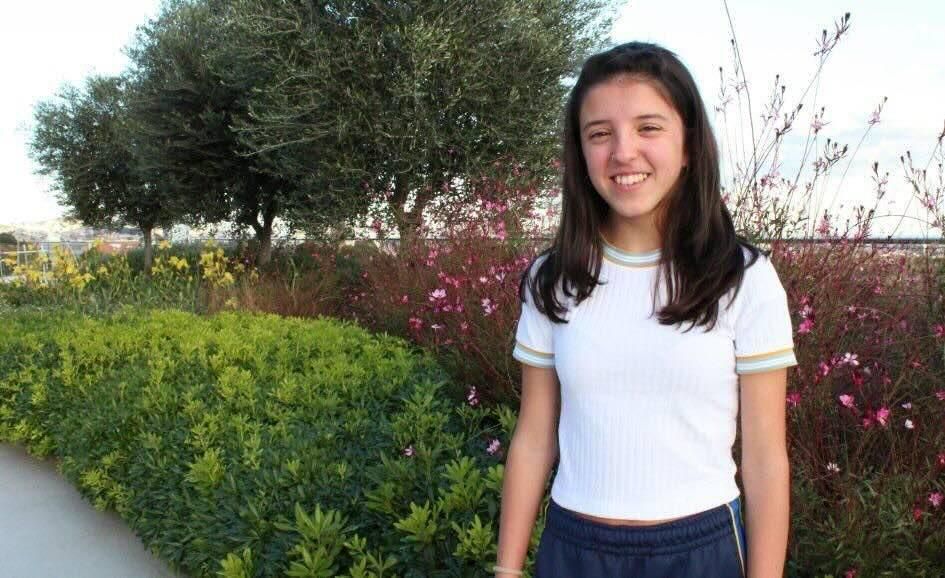
Aitana Sánchez, a patient in the Clinical Immunology and Primary Immunodeficiencies Unit, explains how she has adapted to living with her disease over the course of a few months.
Aitana’s life has changed in a matter of months. In June 2018, after a blood analysis performed on account of highly inflamed lymph nodes, she went to see her pediatrician to get the results. The Primary Care Centre doctor told the 15-year-old girl and her family that the test showed significant alterations and that her level of immunoglobulins (or antibodies) was very low. For this reason, the doctor referred the girl to the Clinical Immunology and Primary Immunodeficiencies Unit of the SJD Barcelona Children’s Hospital.
The teenager was admitted to the Hospital shortly afterwards, where she had several hematological, immunological, infectious and diagnostic imaging tests to find the cause of the problem. In July, Aitana required surgery to analyse the inflamed lymph nodes and rule out lymphoma. "We were very worried, but from the outset they gave us all the information we needed and explained that the surgery was necessary to rule out other diseases", she recalled.
A rapid diagnosis, key to treating the patient
The lymphoma was ruled out after the surgery, and it was confirmed that Aitana had inflamed lymph nodes caused by a viral infection that her body was struggling to fight, and which was caused by depleted immunoglobulins and a poor antibody response. The patient’s diagnosis was also confirmed: Common variable immune deficiency (CVID).
"From a young age I had always had low levels of immunoglobulins, and on one occasion I was hospitalised for platelet deficit. I received treatment for retarded growth for several years. The truth is that we had never linked any of this to a possible disease", explains Aitana. In fact, CVID is the most common primary symptomatic immunodeficiency and is often not diagnosed until adulthood. The patient recalls how she often had small infections and always felt very tired, but neither she nor her family felt that the symptoms might be pointing to a possible disease until Dr Laia Alsina confirmed the diagnosis.
The cause of this disease is still unknown in most cases, although several genetic studies are being conducted to help to diagnose it. Thanks to the experience of the Clinical Immunology and Primary Immunodeficiencies team at the SJD Barcelona Children’s Hospital and that of other departments at the hospital, we were able to diagnose and treat Aitana much quicker. "It all went very quickly and very well. In a short space of time I learnt what was wrong with me and what the solution would be", concludes the patient, who says that she has grown a great deal in recent months after this experience.
Home treatment to reduce hospital visits
"The first thing I asked myself was: 'Will I have this disease forever?'". Aitana was particularly concerned about her future and what consequences the immunodeficiency would have on her daily life. The Immunology team told her that the disease required long-term immunoglobulin treatment. The purpose of this once-monthly treatment is to prevent possible infections from developing or worsening. Since it is a chronic treatment, the family were asked if they would rather administer it subcutaneously (at the patient’s home, after the family had received training), instead of having it done intravenously (at the hospital).
Aitana has already received the second subcutaneous treatment at the Day Hospital, where she is being taught to administer herself the immunoglobulin so that she can do it without having to travel. "I’ll be able to do it myself after the third session. I’m still learning and getting used to it, because I think I will find it hard to inject a needle into myself", she admits, although she is also confident that she will only have to return to the Hospital a few times.
This is the main treatment she will need for the time being, although she may occasionally require other therapies for her immunodeficiency. She concluded: "Talking with my friends and family helped a lot, especially with my middle sister. I think that the best thing to do when you are diagnosed with a disease is to voice any concerns worries or doubts you may have".



